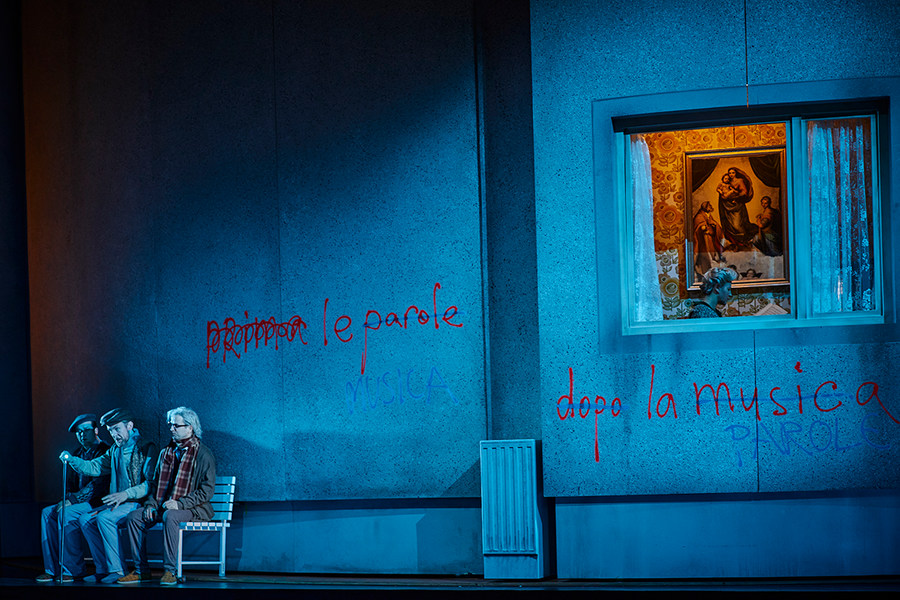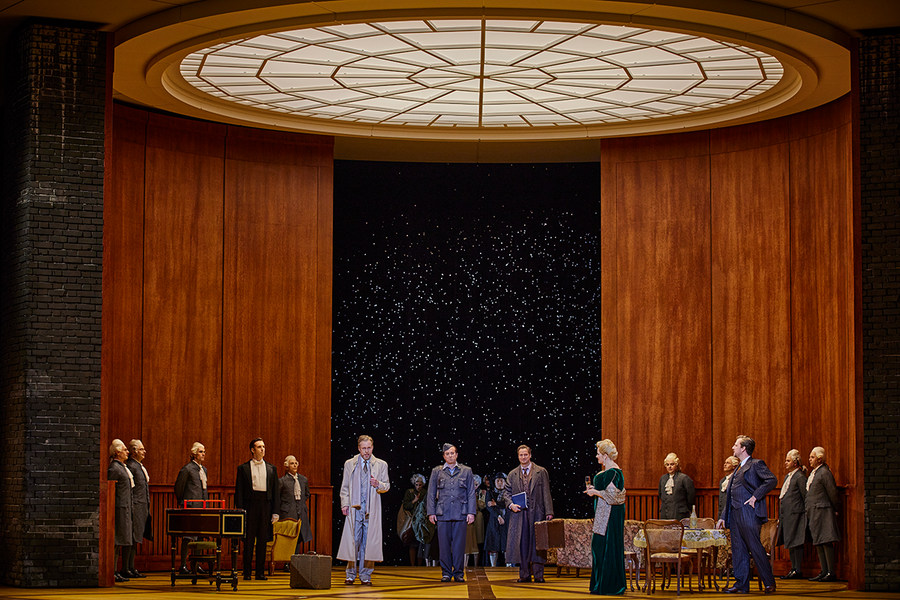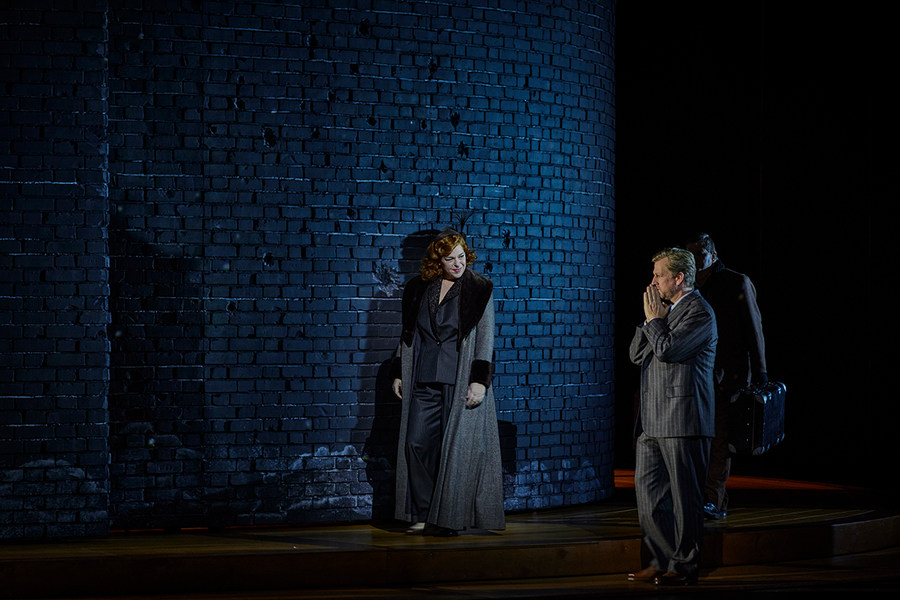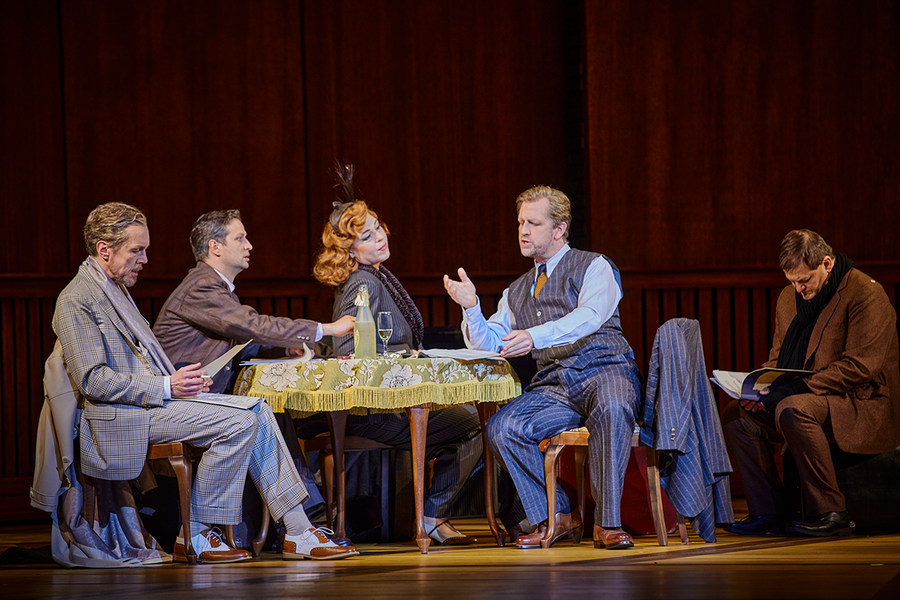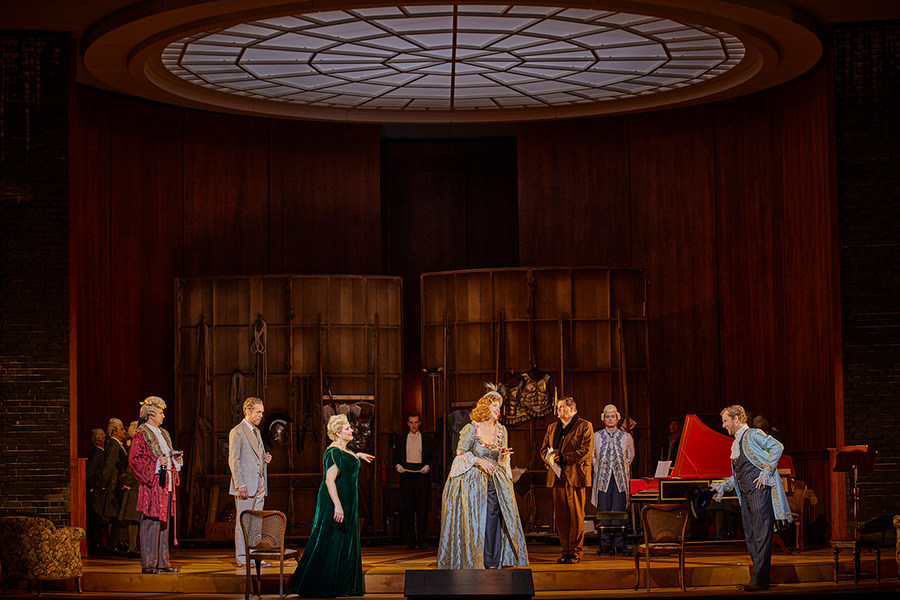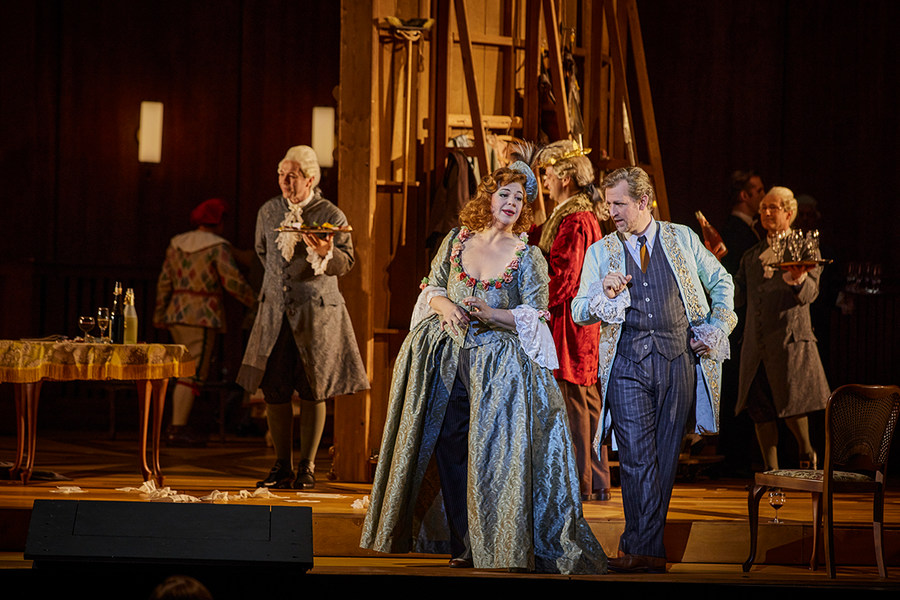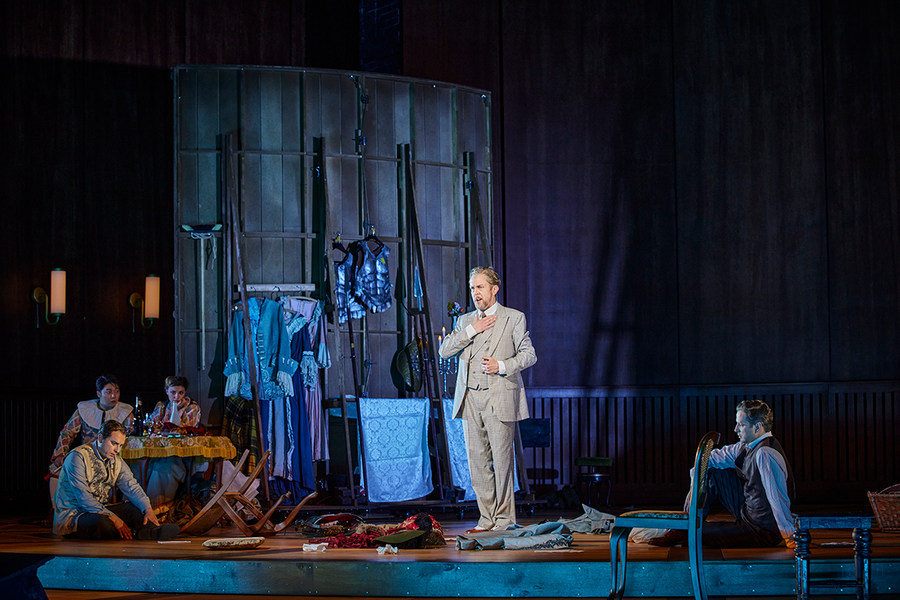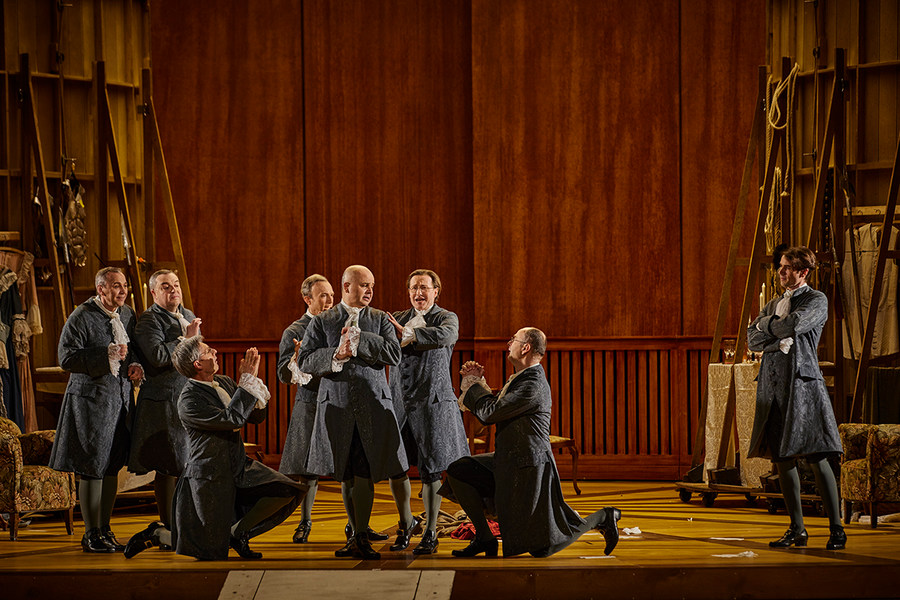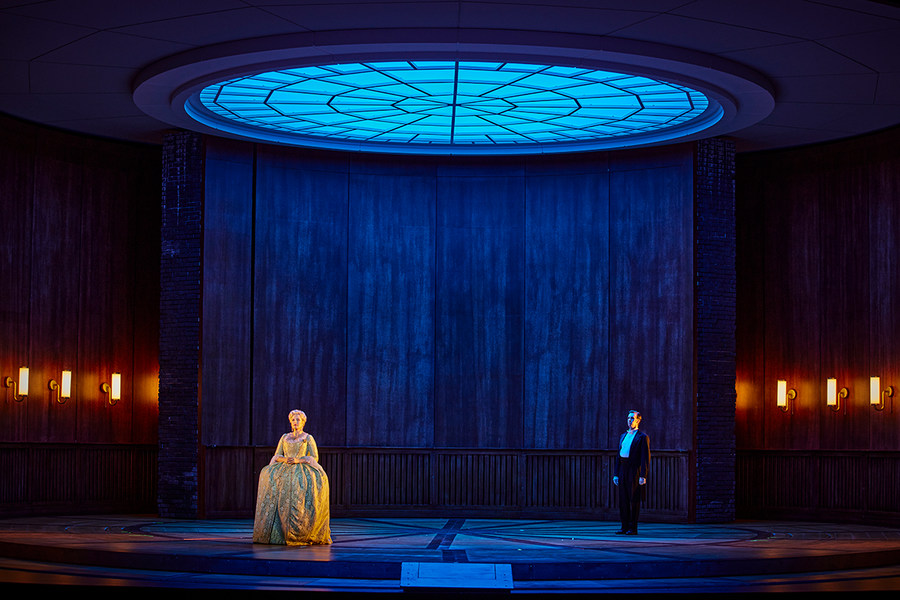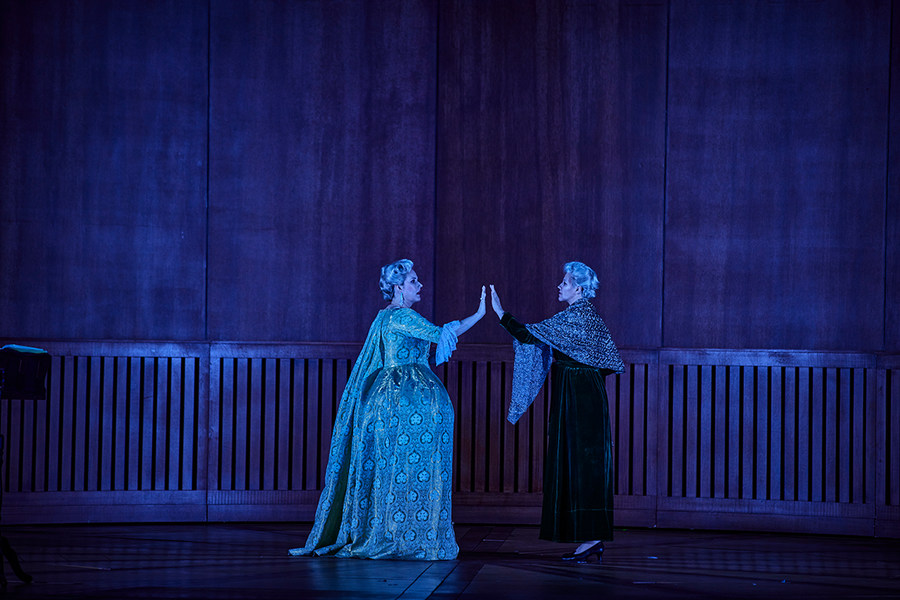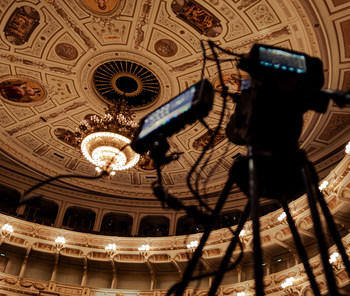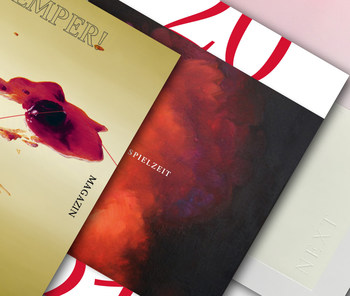Premiere 8. May 2021
Performed in German with German and English supertitles
Piece-Info
Subtitled »A Conversation Piece with Music«, Richard Strauss’s »Capriccio«, which premiered in Munich in 1942, was the climax of the composer’s stage work, a farewell to opera and a confirmation of his (ambivalent) insistence on the autonomy of art at a time of total war. In a rococo chateau near Paris, the poet Olivier, the composer Flamand and the Countess Madeleine not only negotiate their erotic relationship to one another, but also the question – basic to opera history – of what is more important: the music or the words? Prima la musica, poi le parole? Richard Strauss’s response is to weave a fine musical tapestry, from the wonderful string sextet at the beginning of the opera, through the sparkling parlando, the seemingly weightless conversational tone, fugue, sonnet and octet, to the poetic moonlight piece and the sentimental-ironic finale. At the work’s conclusion, the undecided Countess interrogates her reflection in the mirror: »Can you help me find an ending to their opera? Is there one that isn’t trivial?«
In preparation for her birthday celebrations, the young, widowed Countess Madeleine has invited Flamand, a composer, and Olivier, a poet, to her castle near Paris. Both look on as the hostess listens raptly to a string sextet that Flamand has composed for her. The musician and poet are in love with Madeleine and their passions are inflamed as they discuss the question of whether poetry or music is preeminent: »Prima le parole, dopo la musica or Prima la musica, dopo le parole.« Theater director La Roche, who slept during the concert, doesn't think much of such arguments. He is at the castle to stage one of Olivier’s plays for the festivities. Madeleine enters into the discussion, accompanied by her brother, the Count: she, too, does not know which of the two muses she prefers, whether she should choose Flamand or Olivier ... Things are easier for the Count, who is in love with Clairon, a famous actress who is expected that day for a rehearsal. Clairon arrives. She and the Count compete in an alternating recitation of a sonnet from Olivier's new play. Flamand feels inspired by the words to compose and hurries off, while Olivier uses the opportunity to make a declaration of love to the Countess (in vain). Flamand returns and performs his musical rendition of Olivier's sonnet. Madeleine is delighted and accepts it as a gift from both artists. Olivier visits La Roche’s rehearsal of his play. Now Flamand in his turn declares his love for Madeleine – and is summoned to the library for a rendezvous the next day at eleven o'clock. After everyone has once again gathered in the salon, La Roche presents a young dancer and a pair of Italian singers to the distinguished company. The discussion about which art has supremacy flares up again: La Roche argues emphatically that on the stage, all the arts need to be subordinate to the production; there is also a lack of works that portray real and authentic people. To everyone's surprise, the Count makes a proposal: »Portray yourselves! Today’s events, what we all experienced …« Flamand and Olivier are commissioned to write just such an opera. The artists are full of enthusiasm and set off on their journey back home to Paris, the Count accompanies Clairon, and Madeleine remains behind alone. When the Major-Domo reports that Olivier will be waiting for her in the library at eleven o’clock the following day, she remembers that she had summoned Flamand to be there at the same time; which of the two should she choose? »If you choose one, you lose the other.«
Gallery
Capriccio
